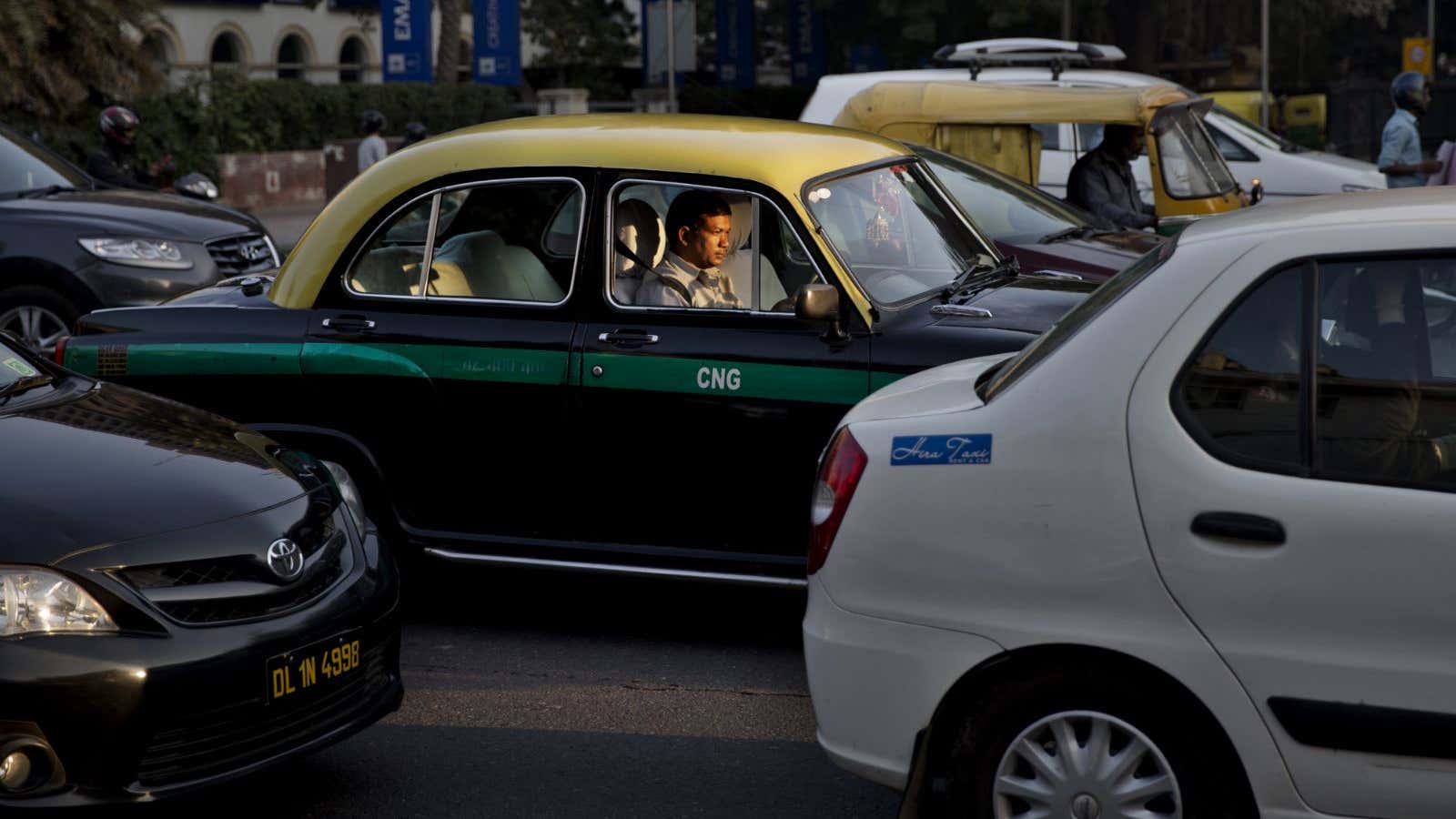The Delhi transport department’s decision to ban Uber is luddite. It is reminiscent of how the first regulations concerning motor cars sought to ban them, reasoning it would scare the horses which were used to draw carriages.
Why was Uber banned?
On Dec. 7, 2014, the American startup’s dream ride in India came to a sudden halt when an alleged rape by a Uber cab driver was reported in Delhi.
As more details emerged over the week, charges against the company for negligence gained credibility. It was stated by many that Uber failed to conduct background checks on its drivers. The ride-hailing service also did not seek any local registrations under the Motor Vehicles Act and operated purely as a virtual entity.
Beyond that, Uber did not seek a licence under the Radio Taxi Scheme, 2006 and it permitted drivers holding All India Permits (which permit taxis to undertake inter-state journeys only) to ply their cabs within the local limits of Delhi.
Acting on this, media reports indicate the Delhi transport department blacklisted Uber and prohibited it from providing services.
The authorities further indicated that all such online services— for example Ola or TaxiForSure— were illegal. Similarly placed companies would now be required to comply with the Radio Taxi Scheme, 2006 or cease operations. This is even if they conduct thorough background checks on drivers and ensure that they hold correct taxi permits.
Luddite regulators
The Radio Taxi Scheme, 2006 does contain compliances which are beneficial to users, however it is limited by the prescription of a radio technology and a business model.
Compliance with the Radio Taxi Scheme, in its present form, will force companies to employ an outdated mode of technology and also raise taxi fares. The scheme in its present form tethers cab services to make bookings only by phone. It further restrains the business model of an aggregator such as Uber, requiring any company to own a minimum fleet of cars as well as parking space.
Silver lining
Concerns on security can be fulfilled by aggregators given that a policy dialogue is initiated on it.
There exists a possibility of this, since the ministry of road transport and highways recently released a draft Road Transport and Safety Bill, 2014 that may replace the Motor Vehicle Act, 1988. The draft bill focusses on the creation of a regulator, which will be an independent agency for vehicle regulation and road safety.
But while we wait for this replacement to take place, maybe the government should consider amendments in the existing law.
The government has shown extreme alacrity to move amendments in the existing motor vehicles rules for e-rickshaws, to ensure a licensing process for a new mode of transport, which was falling outside any legal regulation.
Why not show the same flexibility in the case of internet-based cab companies?
